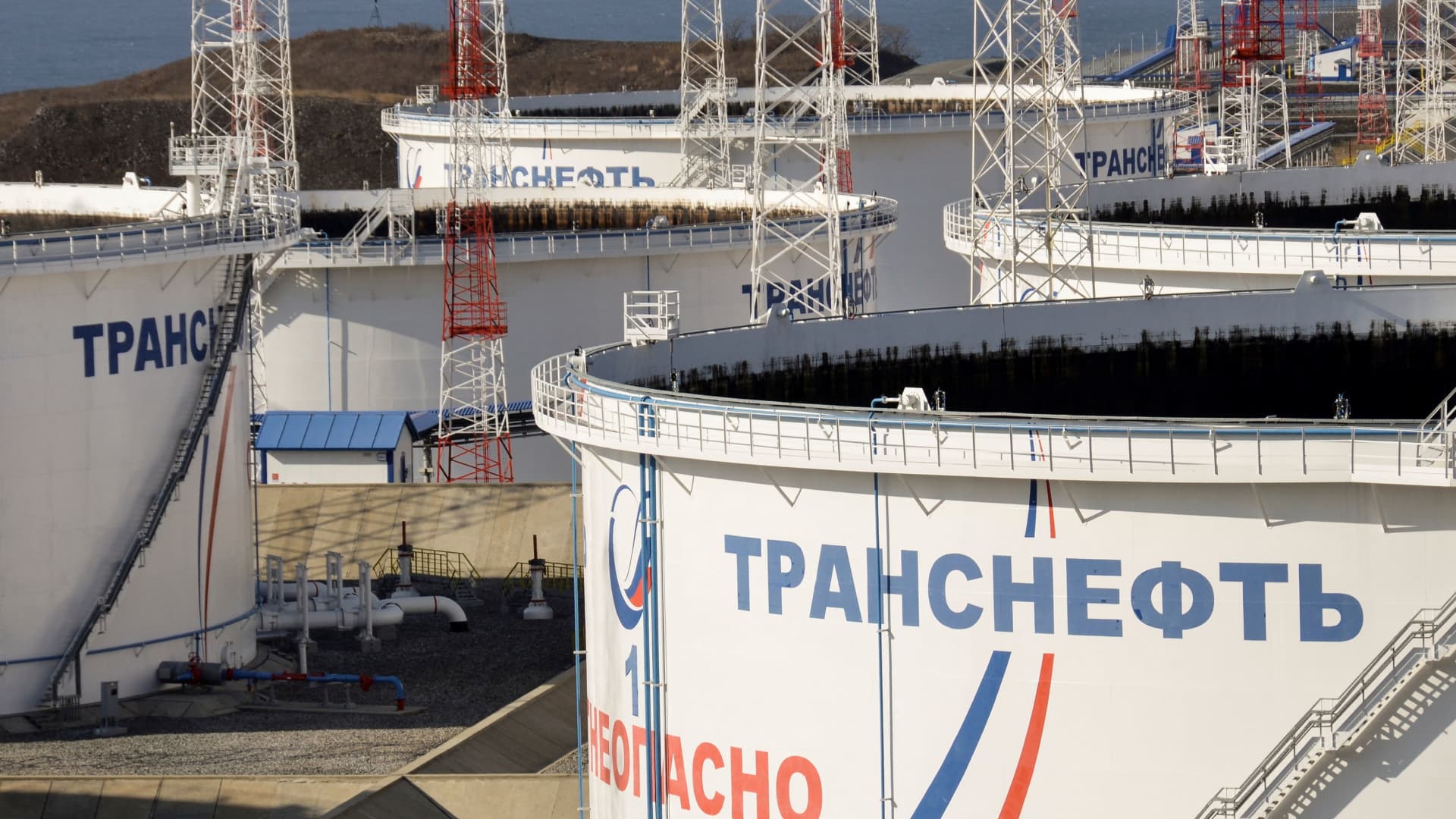European Union unlikely to impose an oil embargo on Russia, sources say

The European Union is unlikely to impose an immediate oil embargo on Russia over its unprovoked invasion of Ukraine, according to two CNBC sources with knowledge of the discussions.
The U.S. decided to ban imports of the commodity earlier this month, but international allies have so far refused to do so given their dependency on Russian energy. In 2020, Russian oil imports accounted for about 25% of the EU’s oil purchases, according to the region’s statistics office.
The EU’s reluctance in taking action against Russian oil accentuated a dip in prices on Tuesday morning. Brent futures fell about 0.6% in early trading hours to $114.96 a barrel.
Whereas Poland and the Baltic nations are among the most vocal supporters of restricting the purchases of Russian oil, other nations — notably Germany and Hungary — are concerned about what this step would mean for prices.
“Only a minority of countries are in favor [of an oil embargo],” an EU official, who didn’t want to be named due to the sensitivity of the talks, told CNBC Tuesday.
A second anonymous EU official said: “Discussions continue but no decision likely this week unless [Russian President Vladimir] Putin does something even more outrageous.”
European leaders will be gathering in Brussels later this week to further coordinate their response to the invasion of Ukraine. U.S. President Joe Biden will also be in attendance.
Chemical weapons threat
The U.S. has recently highlighted the possibility of Russia using chemical weapons in Ukraine. This came after Russia, itself, accused Ukraine of operating chemical and biological weapons laboratories backed by the U.S. This was roundly rebuffed by Ukrainian and Western officials and, moreover, the West believes that the accusations could actually be Moscow inventing and building a false narrative and pretext for using its own chemical weapons against Ukraine.
When asked what sort of reaction Russia using chemical weapons would cause among European countries, the first EU official said: “Then nothing would be off the table.”
“If Russia starts using chemical weapons, we would be in a different situation,” the same official said, suggesting that an oil ban could be one of the options.
Pressure continues to mount on the bloc to take more action against Moscow as the war in Ukraine drags.
“It is very hard, in my view, to make the case that we shouldn’t be moving into the energy sector, particularly oil and coal,” Simon Coveney, Ireland’s foreign affairs minister, told reporters on Monday.
Finland’s Minister for European Affairs, Tytti Tuppurainen, said Tuesday: “So far we have not agreed on sanctions when it comes to energy, but it is not excluded either.”
Meanwhile, according to a draft document, seen by CNBC, EU leaders are expected to call for an international conference to raise more funding for Ukraine. They will also soon announce that they are phasing out the EU’s dependency on Russian gas, oil and coal imports “as soon as possible.”




